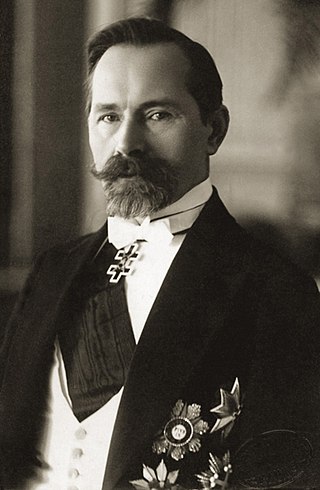
Antanas Smetona was a Lithuanian intellectual, journalist and politician who served as the first president of Lithuania from 1919 to 1920 and again from 1926 as a de facto dictator until the Soviet occupation of Lithuania in 1940. Referred to as the "Leader of the Nation" during his presidency, Smetona is recognised as one of the most important Lithuanian political figures between World War I and World War II, and a prominent ideologist of Lithuanian nationalism and the movement for national revival.

The prime minister of Lithuania is the head of government of Lithuania. The prime minister is appointed by the president with the assent of the Lithuanian parliament, the Seimas. The modern office of prime minister was established in 1990, when Lithuania declared its independence, although the official title was "Chairperson of the Council of Ministers" until 25 November 1992.

"Tautiška giesmė" or "Lietuvos himnas", also known by its incipit "Lietuva, Tėvyne mūsų", is the national anthem of Lithuania. The music and lyrics were written in 1898 by Vincas Kudirka, when Lithuania was still part of the Russian Empire. The fifty-word poem was a condensation of Kudirka's conceptions of the Lithuanian state, the Lithuanian people, and their past. Shortly before his death in 1899, the anthem was performed for Lithuanians living in Saint Petersburg, Russia.

Kazys Grinius was the third President of Lithuania, holding the office from 7 June 1926 to 17 December 1926. Previously, he had served as the fifth Prime Minister of Lithuania, from 19 June 1920 until his resignation on 18 January 1922. He was posthumously awarded the Lithuanian Life Saving Cross for saving people during the Holocaust and was recognised as a Righteous Among the Nations in 2016.

Antanas Merkys was the last Prime Minister of independent Lithuania, serving from November 1939 to June 1940. When the Soviet Union presented an ultimatum to Lithuania demanding that it accept a Soviet garrison, President Antanas Smetona fled the country leaving Merkys as acting president. Merkys ostensibly cooperated with the Soviets, and illegally took over the presidency in his own right. After three days, Merkys handed power to Justas Paleckis, who formed the People's Government of Lithuania. When Merkys attempted to flee the country, he was captured and deported to the interior of Russia, where he died in 1955.
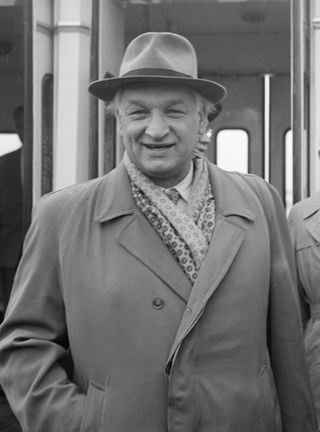
Justas Paleckis was a Lithuanian Soviet author, journalist and politician. He was nominal acting president of Lithuania after the Soviet invasion while Lithuania was still ostensibly independent, in office from 17 June to 3 August 1940. He then remained the head of state of the Lithuanian SSR until 1967.
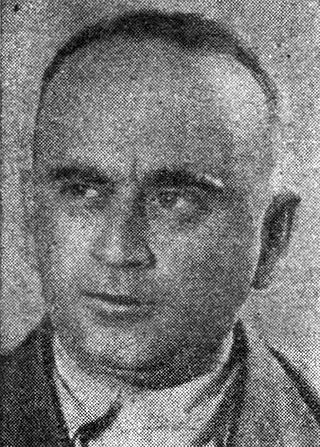
Vladimir Georgievich Dekanozov was a Soviet senior state security operative and diplomat.
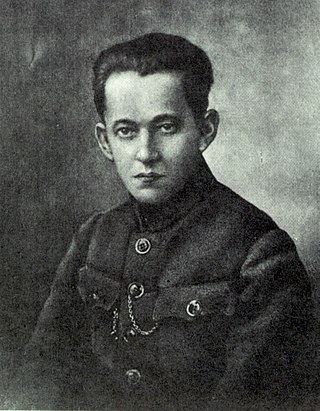
Vincas Mickevičius, better known by his pen name Vincas Krėvė-Mickevičius, was a Lithuanian writer, poet, novelist, playwright and philologist. He is also known as Vincas Krėvė, the shortened name he used in the United States.
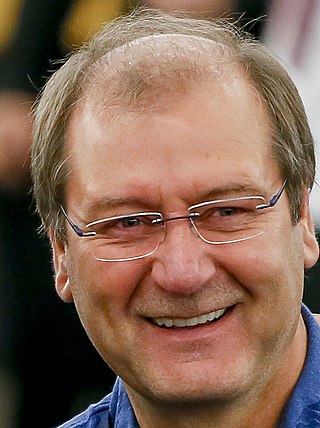
Viktor Uspaskich is a Russian-born Lithuanian entrepreneur, politician and former MEP.
The People's Seimas was a puppet legislature organized in order to give legal sanction the occupation and annexation of Lithuania by the Soviet Union. After the Soviet ultimatum in June 1940, a new pro-Soviet government was formed, known as the People's Government. The new government dismissed the Fourth Seimas and announced elections to the People's Seimas. The elections were heavily rigged, and resulted in a chamber composed entirely of Communists and Communist sympathizers. The new parliament unanimously adopted a resolution proclaiming the Lithuanian Soviet Socialist Republic and petitioned for admission to the Soviet Union as a constituent republic. The Supreme Soviet of the USSR accepted the Lithuanian petition on 3 August 1940. The People's Seimas adopted a new constitution, a close copy of the 1936 Soviet Constitution, on 25 August and renamed itself to the Supreme Soviet of the Lithuanian SSR.
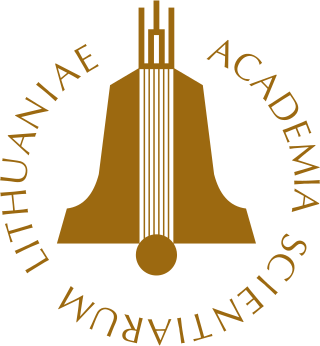
The Lithuanian Academy of Sciences or LMA is a state-funded independent organization in Lithuania dedicated for science and research. Its mission is to mobilize prominent scientists and initiate activities that would strengthen the welfare of Lithuania and contribute to the scientific, social, cultural and economic development of the country.
Paleckis is the masculine form of a Lithuanian family name. Its feminine forms are: Paleckienė and Paleckytė.
The People's Government of Lithuania was a puppet cabinet installed by the Soviet Union in Lithuania immediately after Lithuania's acceptance of the Soviet ultimatum of June 14, 1940. The formation of the cabinet was supervised by Vladimir Dekanozov, deputy of Vyacheslav Molotov and a close associate of Lavrentiy Beria, who selected Justas Paleckis as the prime minister and acting president. The government was formed on June 17 and, together with the People's Seimas (parliament), transitioned independent Lithuania to a socialist republic and the 14th republic of the Soviet Union thus legitimizing the Soviet occupation of Lithuania. The People's Government was replaced by the Council of People's Commissars of the Lithuanian SSR on August 25. Similar transitional People's Governments were formed in Latvia and Estonia.

The Socialist People's Front is a left-wing political association in Lithuania formed in December 19, 2009, from a merger of the Front Party and Lithuanian Socialist Party. Held at Vilnius University, the party's foundation featured 102 delegates. The merger was approved by an affirmative vote of 96 delegates, with three against and one abstaining. The leader of the Lithuanian Socialist Party, Giedrius Petružis, refused candidacy for chairperson of the merged party, claiming a desire to return to academic life. The leader of the Front Party, Algirdas Paleckis, was unanimously chosen as the leader of the SPF.

Algirdas Paleckis is a Lithuanian diplomat, politician, columnist, leader of the political movement The Dawn of Justice. Šiauliai district court convicted Paleckis for spying for Russia in July 2021. The conviction was upheld by the Lithuanian Court of Appeal in May 2022.

Gabrielius Landsbergis is a Lithuanian politician serving as the current Lithuanian minister of Foreign Affairs since 2020 in the Šimonytė Cabinet. A member of the Seimas for the Žaliakalnis constituency, incumbent President of the Committee of Ministers of the Council of Europe and a former member of the European Parliament with the Group of the European People's Party. He has been the Chairman of the Homeland Union since 2015.

Jonas Aukštuolis was a Lithuanian diplomat. During World War I, he worked for the Lithuanian Society for the Relief of War Sufferers and was sent to Stockholm to organize contacts with German-occupied Lithuania. He was the Lithuanian representative in Sweden and Norway (1919–1922), Netherlands (1921–1922), Latvia (1923–1927), Estonia (1923–1930), Finland (1929–1934), Czechoslovakia (1932–1934), Argentina, Uruguay, and Brazil (1934–1939). In 1939, he was recalled to Kaunas and was deported by the Soviets to a Gulag camp in June 1941. He died in one of the camps in Mordovia.
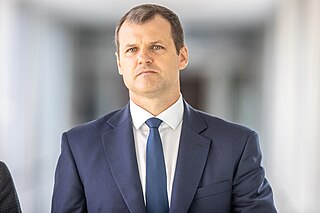
Gintautas Paluckas is a Lithuanian politician.

The Union of the Working People of Lithuania or Union of Lithuanian Working People was the front organization set up by the Communist Party of Lithuania after the Soviet occupation of Lithuania to take part in the rigged 1940 Lithuanian parliamentary election to the so-called "People's Seimas". The organization ceased to exist as soon as the elections passed.

Karolis Didžiulis was a Lithuanian communist politician and statesman. He was a member of the Central Committee of the Communist Party of Lithuania in 1927–1958 and chairman of the Supreme Court of the Lithuanian SSR in 1947–1958.

















